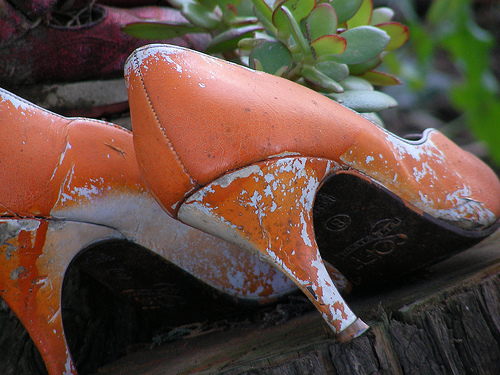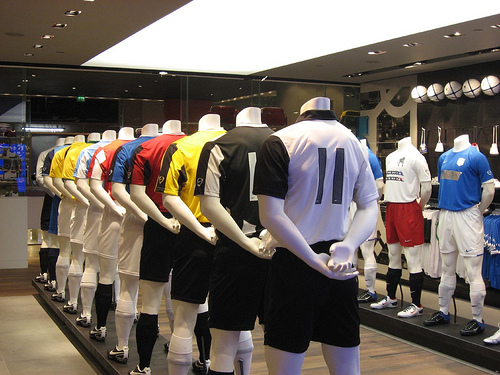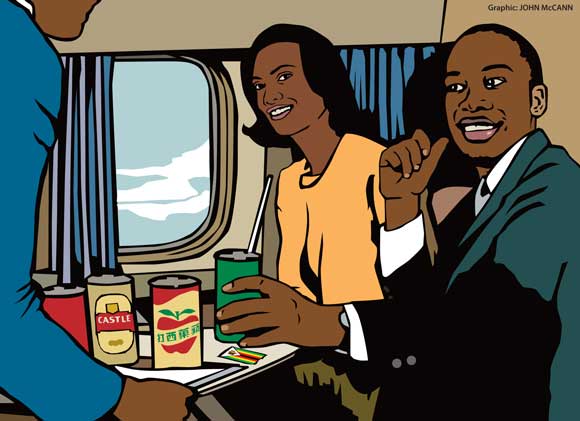The generosity to be found at busy intersections on the streets of Mozambique’s capital can be puzzling to first-time visitors.
My Canadian-based partner, Imelda, was hardly a first-time tourist — she grew up in Maputo. But she was still caught off guard when a couple of shoe-shine boys crouched down and set to work on her best stilettos while we were waiting for a robot to change.
For a moment she thought she was lucky — perhaps it was a new local custom, a way of offering compliments of the season? But when she looked down she was shocked.
Her clean white shoes had been covered in black-tan shoe polish. Before she could recover, the leader of the shoe shine brigade stood up with his waxy brush and demanded: “100 Meticais, menina [sister].”
In a fit of rage typical of a backhome diasporian, Imelda waved down a municipal police officer. Climbing off his motorbike the burly officer burst out laughing when he heard Imelda’s complaint. When he calmed down, he addressed the chief waxer: “Do Santos, sort out your customer!”
Then, leaving no doubt about whose side he was on, he told the boy: “At least today you can afford sardhinhas [tinned fish].” He started laughing again as he climbed back on his bike and rode off. Imelda was left fuming about corrupt police and — more immediately — about how she was going to address the meeting we were on our way to with any dignity in her smeary black-brown heels.
We were going to Maputo’s Alumni Scholars Club where Imelda was to give a speech describing her experiences as a young Maputo girl who had moved to Canada where she was doing an MBA at a top university.
Clearly the guest speaker needed to look her best and live up to the “returning banking alumni” image.
Her nails and make-up were immaculate and when she got dressed that morning she had settled on a white Giorgio Armani suit — complete with matching stilettos. She cursed the shoe polishers. “I am not gonna throw you a single dime. Just look at what you’ve done to my shoes!”
But the polish boys simply threatened to apply another layer of liquid black wax. The leader spoke: “If you don’t give us 50 Meticais we will confiscate your shoes. Do you know how much wax costs?” While he presented his ultimatum, the other boys tried to grab Imelda’s shoes off her feet. The situation was getting crazier and eventually I threw a 100 Meticais note (about R40) towards the boys, grabbed a sobbing Imelda and rushed for the nearest taxi.
Maputo’s streets have become synonymous with the unwelcome attentions of shoe-shiners. Waiting for a robot to change at a busy intersection makes pedestrians easy targets. Most of the time the boys don’t even use genuine shoe polish, but a dense industrial liquid that often corrodes shoes. Most disturbingly they don’t care about the colour of the reluctant customers’ shoes. They apply whatever they happen to have.
Having cleaned your shoes, it is common to threaten to seize them unless the ransom is paid. As we hurriedly looked for replacement white shoes in Maputo’s boutiques, Imelda could not come to terms with the change in her shoes — from crisp white to greasy black. People like Imelda — returning diasporians and tourists — are the most likely victims of the shoeshine boys.
We locals have adopted a more cautious approach to robot crossings in our seaside capital. 100 Meticais for a compulsory shoe polish? That’s a good day’s business in Maputo.
Skand Felicio is a pharmacist in Maputo. This post was first published in the M&G newspaper.


